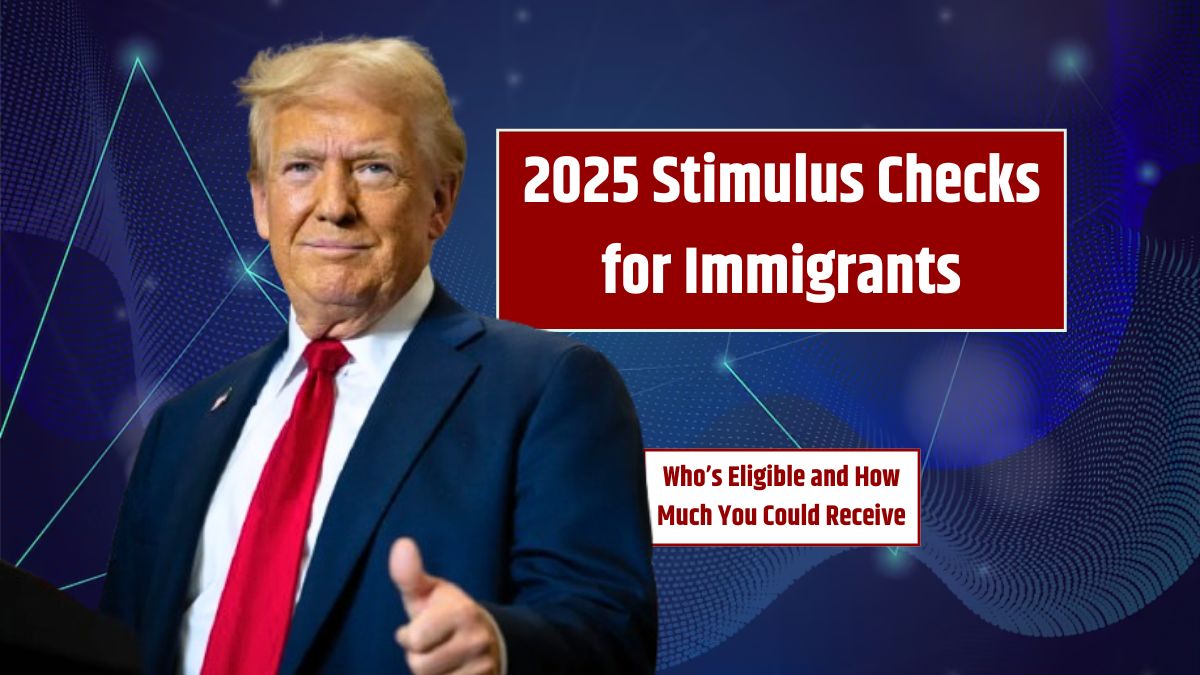As we head into 2025, many immigrants in the U.S. are wondering whether they’ll receive a new round of stimulus checks. While previous payments during the COVID-19 pandemic helped millions, immigrants often faced extra hurdles due to documentation, tax status, or lack of a Social Security Number (SSN). So, are any stimulus payments coming in 2025? Who qualifies? And what can you still claim?
In this guide, we’ll break it all down—eligibility rules, payment methods, credits you can still get, and important steps to take to make sure you don’t miss out.
Overview
At this time, there are no new federal stimulus payments officially confirmed for 2025. However, some immigrants may still be able to claim money they missed from past rounds, especially through the Recovery Rebate Credit.
Here’s a quick look:
| Topic | Details |
|---|---|
| Stimulus Amount | Up to $1,400 (Recovery Rebate Credit, not new checks) |
| Eligibility for Immigrants | Based on SSN or ITIN, income, and filing status |
| IRS Tool | “Get My Payment” to check past stimulus payments |
| New Checks in 2025? | No confirmed new checks as of now |
| Claim Deadline | When filing 2025 taxes |
| Resource | www.irs.gov |
What Is a Stimulus Check?
Stimulus checks, also known as Economic Impact Payments (EIPs), are direct government payments to help people during tough economic times. During COVID-19, they provided relief to millions—but not everyone got them. For immigrants, whether you received a check often depended on whether you had a valid SSN or were married to a citizen.
Past Payments
There were three main rounds of stimulus checks:
- First Round (2020): Up to $1,200 per adult
- Second Round (2021): Up to $600
- Third Round (2021): Up to $1,400
The third round under the American Rescue Plan included more immigrant families, especially if one spouse was a U.S. citizen or green card holder. But immigrants with only an ITIN (Individual Taxpayer Identification Number) were generally excluded from full benefits.
2025 Eligibility for Immigrants
- Most stimulus checks required a valid SSN to qualify.
- Some immigrants with ITINs were left out—unless they filed jointly with a spouse who had an SSN.
- If you now have an SSN or filed jointly with someone who does, you might still qualify for past payments.
Income Limits
- Single earners making under $75,000 were eligible for full stimulus amounts.
- The limit was $150,000 for married couples filing jointly.
- If your income was too high before but dropped recently, you could still claim stimulus funds through a tax credit.
Tax Filing Status
- You must file taxes, even if your income is low or you don’t owe anything.
- Filing a 2025 tax return is the only way to access the Recovery Rebate Credit if you missed a past payment.
Recovery Rebate Credit
This credit is a second chance for those who didn’t get a stimulus check—or got less than they should have.
Here’s how it works:
- File your 2025 tax return.
- Claim the credit for missed stimulus payments from 2020 or 2021.
- The IRS will calculate how much you should receive based on your current tax return and send it to you.
This credit can be especially helpful for immigrants whose circumstances have changed—like gaining an SSN or adjusting their tax filing status.
How Payments Are Delivered
If a new payment or credit applies to you in 2025, it will be issued one of three ways:
- Direct deposit (fastest)
- Paper check
- Prepaid debit card
To avoid delays, make sure your address and bank info are correct when you file your return.
Key Resources for Immigrants
- IRS.gov: The official source for tax and stimulus info.
- Tax software: Tools like TurboTax, H&R Block, and IRS Free File can help.
- Immigrant-focused organizations: Groups like the National Immigration Law Center offer help with navigating financial aid programs.
- Community centers: Many offer free or low-cost help with filing taxes.
What If You Don’t Qualify?
Not eligible for stimulus payments? You may still qualify for other programs:
- State stimulus checks: Some states offer local relief for low-income residents.
- SNAP benefits: Helps with grocery bills.
- Medicaid: Provides health coverage to low-income individuals and families.
- TANF: Offers cash assistance and job support for low-income families.
These programs often have more flexible eligibility rules than federal stimulus checks.
What Should You Do Now?
- File your taxes—even if you have little or no income.
- Check your filing status—married, head of household, or single? It matters.
- Use the “Get My Payment” tool on IRS.gov to see if you missed a past check.
- Stay informed—if a new stimulus is announced, the IRS website will be the first to post it.
FAQs
Will there be a new stimulus in 2025?
No new checks have been confirmed for 2025.
Can immigrants get stimulus checks?
Yes, if they have an SSN or meet other IRS eligibility rules.
What is the Recovery Rebate Credit?
It’s a tax credit for those who missed past stimulus payments.
Do I need to file taxes to claim stimulus?
Yes, you must file a return to claim any missed payments.
Can I get help filing taxes as an immigrant?
Yes, many groups and free tools are available to assist you.






